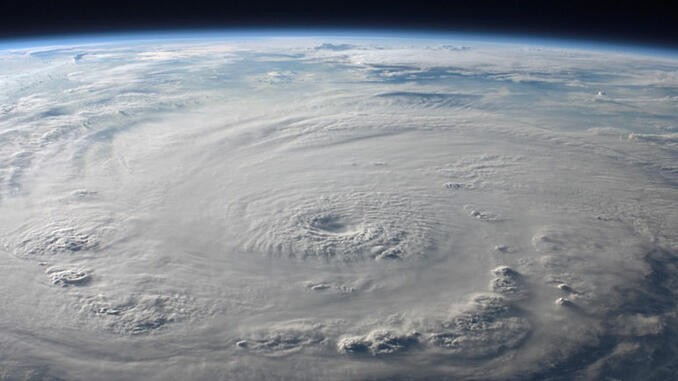
Too often the most consequential issue in world affairs gets pushed off to the backburner and ignored. We pay attention to forces such as a rising China, a nuclear North Korea, a possible nuclear Iran, or a resurgent Russia that is challenging the West. But there is one issue that will effect all of the world and have even greater and more profound consequences. It will cause social and economic upheaval and even render some countries uninhabitable. This issue is global warming, and it will effect every society on earth. It is a manmade problem, and its severity will depend on man’s will to control its collective behavior.
Man’s emission of carbon dioxide is causing the earth’s atmosphere to gradually warm. Of the 17 warmest years ever recorded, 16 have occurred since 2001. Currently, the concentration of carbon dioxide in the atmosphere exceeds 410 parts per million, the highest level in 800,000 years. The earth’s average temperature has risen 1.2 degrees Celsius higher than it was when the Industrial Revolution began, and of the 17 warmest years ever recorded, 16 have occurred since 2001. The consensus in the scientific community is that the maximum temperature increase to avoid dangerous climate change is two degrees, but man’s emission of carbon dioxide is on track to exceed that temperature mark in about 20 years if nothing is done.
Sea levels have been rising over the past century, and the rate has increased in recent decades as glaciers and ice caps melt. Currently sea levels are rising by 3.12 millimeters per year, and that rise will slowly displace many coastal populations. Farm land near the coasts will slowly be rendered useless as salty ocean water mixes in with fresh ground water making it impossible to grow crops. In coastal areas, once potable water will slowly become too salty for consumption, and governments will have to look elsewhere and use new means to supply populations with fresh water. Some island nations will disappear altogether. The Republic of Kiribati, a collection of small islands in the Pacific, most of which only rise a few meters above sea level, has already begun buying land in Fiji as a last resort in the face of rising sea levels.
These changes from global warming will have a geopolitical impact and test the international system in ways that are hard to predict. Countries that share water resources, for instance, will come under increasing tension. Where shared water resources are scarce and government and diplomatic institutions strained, global warming can worsen such situations and create new flashpoints.
An example can be found with India and Pakistan. They share the Indus River as a resource which flows through disputed territory. In the past the two countries have fought wars over their disputed borders, but they have never fought over sharing the Indus River’s resources. This is to the thanks of the Indus Waters Treaty signed in 1960. In more recent years, however, the river’s resources have become more scarce, and tensions between the two countries have increased. India has launched efforts to build dams upstream causing Pakistan to challenge those efforts. In 2016 Indian Prime Minister Nerendra Modi temporarily suspended India’s participation in joint meetings with Pakistan about sharing the Indus River’s resources, furthering tensions over the crucial river.
In another global-warming-related phenomenon, melting ice caps are causing new tensions to arise between nations that share the Arctic. The Arctic has been seeing drastic changes from global warming. This past winter temperatures in parts of the Arctic were recorded as high as 25 degrees Celsius above normal and sea ice has been dramatically reduced in recent years. The United States, Canada, Russia, and other Arctic nations are having disputes over new Arctic shipping lanes and rights to oil and gas fields as sea ice melts away.
The economic effects of global warming are and will effect events in roundabout ways. In 2010 a drought destroyed one-fifth of Russia’s wheat harvest causing the government to react by banning grain exports. The move, combined with declines in the grain production output of Argentina and Australia (also caused by droughts), caused global grain prices to jump. This price jump in return worsened the situation in Egypt causing food-price inflation to hit 19 percent, which helped fuel protests that toppled the regime of Hosni Mubarak.
As the climate worsens its impact will effect governments and the relationships between them in greater and deeper ways. The clock is ticking on man’s collective ability to curb its carbon dioxide output before global warming becomes uncontrollable after. The Paris Agreement was an important and critical step for mankind to take. However, the United States, which is the second largest producer of carbon dioxide, just behind China, has refused to sign the agreement. The people of America should keep the pressure on their elected representatives to join the deal as soon as possible. The world depends on them. In the meantime, the world will continue to warm and that will challenge governments in new and many difficult ways.
